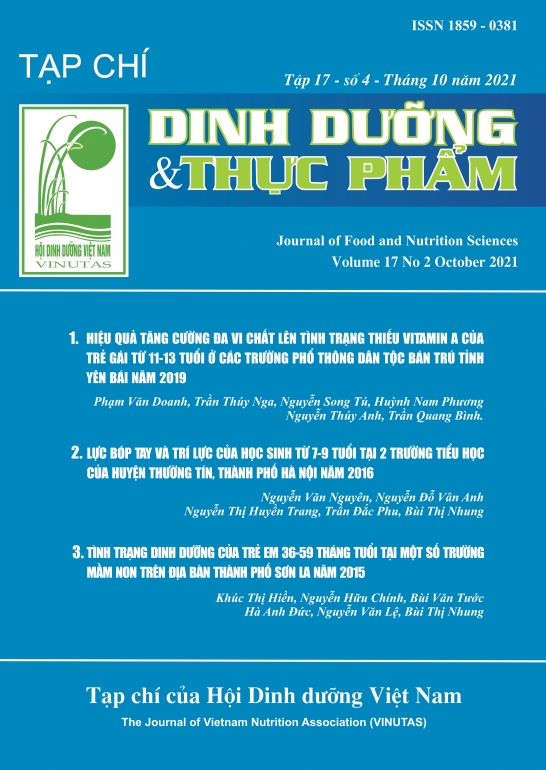THE EFFECTIVENESS OF MICRONUTRIENT SUPPLEMENTATION ON IRON DEFICIENCY ANEMIA AMONG FEMALE SCHOOL CHILDREN 11 TO13 YEARS OLD IN ETHNIC MINORITY SEMI BOARDING SECONDARY SCHOOLS IN YEN BAI PROVINCE
Main Article Content
Abstract
The overall objective of this research is to assess the effectiveness of multiple micronutrient supplementation on iron deficiency anemia among female school children aged 11 to 13 years old with -4 <HAZ < -1 in ethnic minority semi boarding secondary schools in Yen Bai province, using WHO (1995) classifications. A double-blind randomized controlled trial was conducted among 472 school girls being divided into 2 groups. The multi-micronutrient supplements consisted of vitamin A (400 mcg), folic acid (150 mcg), iron (15 mg) and 17 other micronutrients. Each of the subject received one tablet everyday x 5 days/week for 6 months. All of the children were dewormed by Albendazole 400 mg at baseline. Results: The difference in average vitamin A concentration and rate of vitamin A deficiency of the two groups after 3 months was not statistically significant (p>0.05). After 6 months, the average vitamin A concentration in the intervention group increased by 0.10(0.08;0.25)(μg/L); while that of the placebo group increased by 0.02(-0.12;0.19)(μg/L) (p>0.05). The rate of vitamin A deficiency in the intervention group decreased by 41.7% compared to the placebo group (p<0.05). We found that multi-micronutrient supplementation for girls for 6 months was effective in improving vitamin A concentration and the prevalence of vitamin A deficiencies.
Keywords
Girls, Ssemi boarding secondary schools


